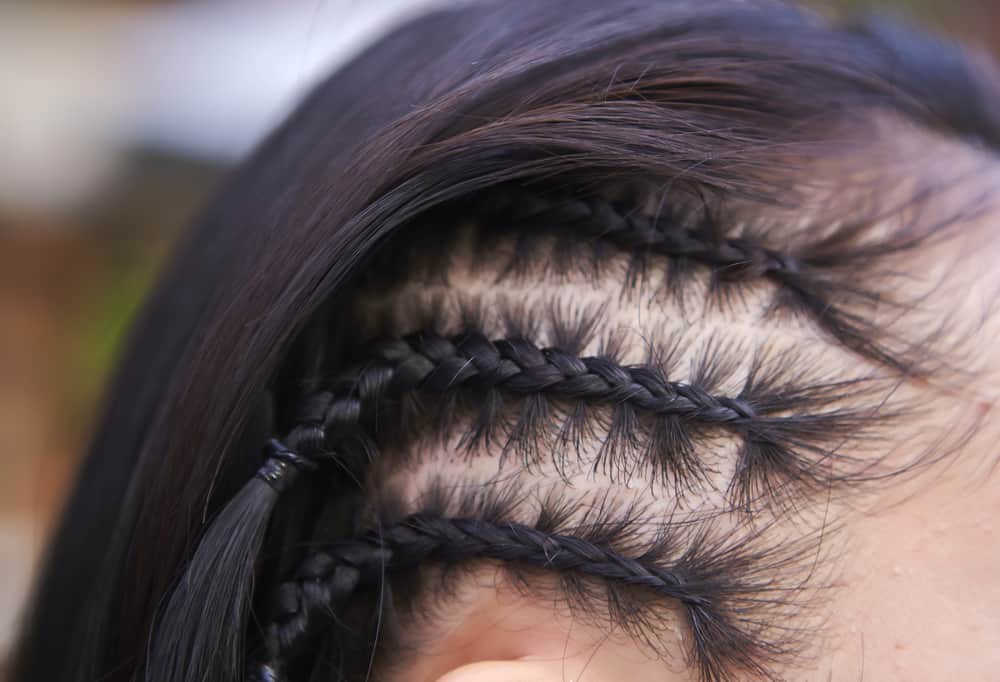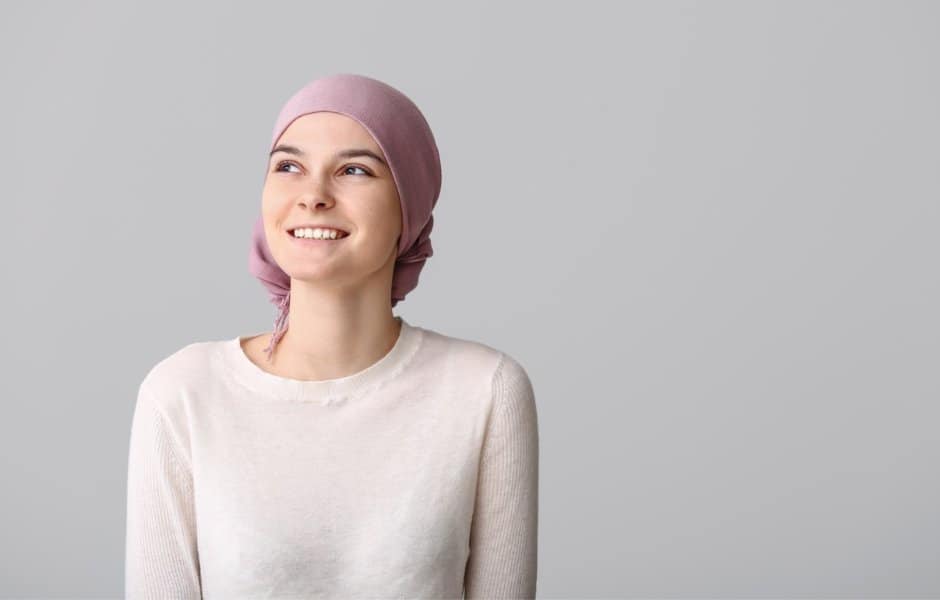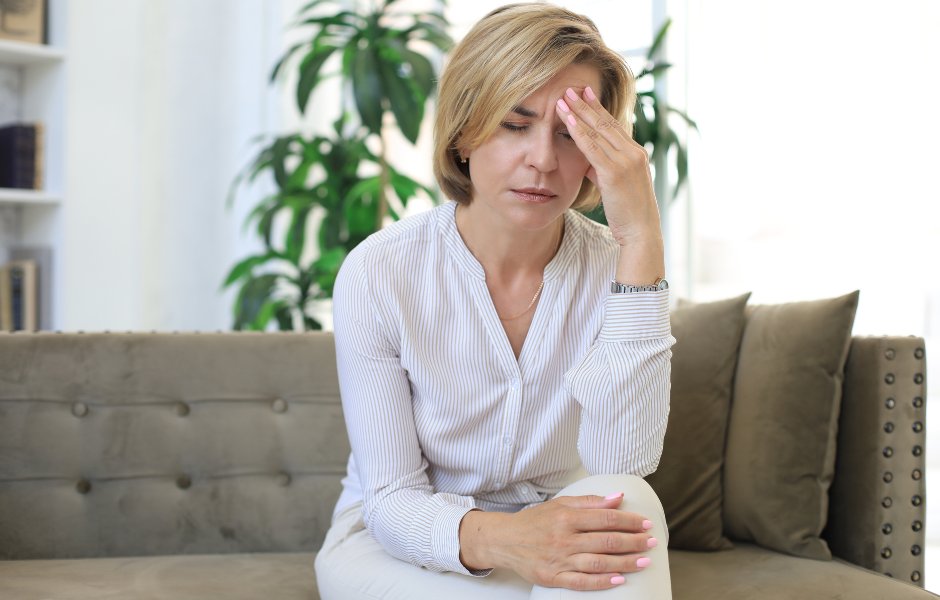Hair loss in women is a nightmare. Hair loss can be due to many reasons such as: genetics, changing hormone levels, or due to the natural aging process. So what to do with a lot of hair loss?
Hair loss can be a sign of a medical condition, but it is also simply a natural response of the body. Therefore, determining the reason why you are losing hair is important to find the right remedy.
Causes of hair loss in women & How to treat it
In general, there are 3 major hair loss patterns in women, including:
- Anagen effluvium hair loss. Hair loss during the hair growth cycle
- Telogen effluvium hair loss. Hair loss during the resting cycle of the hair
- Hormonal female pattern hair loss. This condition causes a lot of hair loss on the top and sides.
How to distinguish hair loss in women is due to a disease or just a natural phenomenon? We invite you to learn more here:
1. Natural causes of hair loss: Hair styling (traction hair loss)

If you often pull close to the roots when styling, this is most likely the cause of hair loss. Hairstyles that can cause you to lose a lot of hair include: tight ponytails, braids or cornrows.
What you need to do:
- Loosen the hairstyle, and tie the hair gently.
- Avoid exposing your hair and scalp to chemicals and heat.
Note: You should not self-treat hair loss with medication without consulting a doctor!
2. Natural causes of hair loss: Due to vitamin deficiency, or for restricted diet

Micronutrient deficiencies such as vitamin D, B vitamins, iron, zinc and copper can be the cause of hair loss.
Hair loss due to lack of substance, what to do?
Re-establish a balanced, nutritionally complete diet. You can consult 10 secrets to building healthy meals and Food against hair loss you should add.
Also, if your hair loss is due to nutritional deficiencies, your doctor may prescribe some supplements. You may be asked to take a multivitamin and 3-5 milligrams biotin everyday.
3. Drug-induced hair loss: Women lose hair due to chemotherapy

Certain medications or treatments for cancer can cause hair to fall out suddenly, even while it’s in the growth phase.
Drug-induced hair loss occurs because the hair follicles are damaged. With proper care, hair can regrow and grow back a few weeks after you stop drug treatment.
Hair loss due to chemotherapy, radiation therapy, what to do?
- Before treatment, you Take care of your hair gently (do not bleach, dye or perm your hair). Also, consider cutting your hair short to make it look thicker and fuller.
- During the treatment of the disease, hair may fall out a lot, be special Scalp care and protection. You need to limit your scalp exposure to direct sunlight or cold air.
- After treatment for healthy hair regrowth, you should Limit your hair’s exposure to heat and chemicals. And be patient for the hair follicles to recover and grow.
4. Stress causes hair loss

Excessive physical or mental stress can cause temporary hair loss. This category includes events such as major weight loss, surgery, illness, and pregnancy. In addition, women can lose a lot of hair due to depression, stress, anxiety, etc.
Hair loss in women due to stress, what to do?
In this case, you should go to the hospital for diagnosis and get medical support and treatment.
5. Due to hormonal changes

If you’re pregnant, taking hormonal birth control pills, or going through menopause, there’s a good chance you’ll have hair problems. You may start to grow hair where it didn’t before, or you may lose more hair during these stages.
During and after menopause, hair can become thinner as the hair follicles shrink. Hair grows more slowly and falls out more easily in these cases.
Excessive hair loss caused by hormonal changes may not require treatment. Hair loss will stop after a while. However, if the condition persists, you should see a doctor for a more accurate diagnosis.
What to do if hair loss in women due to menopause.
You should see a doctor in this case. You can be instructed to check iron concentration or thyroid hormone levels. Your doctor may also check to see if any medications you are prescribed are affecting your hair loss.
Note when treating hair loss in women with hair growth drug Minoxidil (Rogaine®)
This drug is approved to treat hair loss in women and you can buy a 2% or 5% solution at the drugstore. However, you must follow the instructions and the exact dosage.
Minoxidil may irritate the scalp, causing dryness, scaling, itching and/or redness. You need to see a dermatologist if this occurs.
Some other notes include:
- DO wash your face after applying Minoxidil
- DO NOT apply the product to areas other than the scalp
- DO NOT USE Minoxidil if you are pregnant, or plan to become pregnant, or are breastfeeding.
Hair loss in women how to prevent?

You cannot prevent hair loss if it is caused by: disease, aging, genetics.
If the cause of hair loss is due to lifestyle and lifestyle habits, you can prevent it by:
- Limit exposure to chemicals on the scalp
- Eat healthy, get enough: vitamins, minerals and protein
- Massage scalp to stimulate blood flow
- Choose a mild, sulfate-free shampoo
- Quit smoking.
How to deal with it?
Hair loss treatment can take a long time. To deal with this phase, you can try several ways to improve this:
- Try creating volume for the hairline
- Short haircut and layers
- Hair transplants
- Wig team.
Although hair loss itself is not dangerous, it can make women self-conscious about changes in appearance and stress. Hopefully, the article has answered the question: What to do with hair loss in women? At the same time, information on prevention and coping will help your hair loss treatment process.






